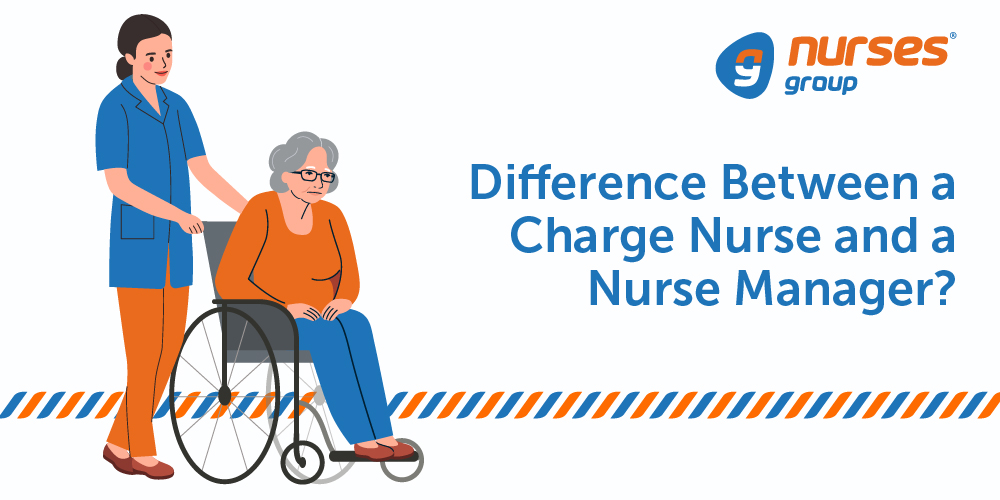
In the busy world of healthcare, the charge nurse is like a leader who guides everyone. The charge nurse in UK is like the leader of a music band made of nurses. They help everyone work together smoothly to take care of patients with strong determination and kindness.
If you are thinking about becoming a charge nurse in UK then that means you are really passionate about nursing. Charge nurses look after some sections of a hospital. They do lots of tasks to make sure everything runs smoothly.
A charge nurse is a skilled nurse who leads other nurses and makes sure patients feel good. They watch over the work of other nurses and make sure that they are doing the best way. Charge nurse also checks that they are following medical rules.
They also help plan how patients are taken care of so they have a good experience, encourage a caring attitude towards patients, and make their team work better. So, they're like leaders and teachers for other nurses, as well as doing lots of nursing tasks.
Charge nurses lead their nursing team for a certain time in their area. Their main job is to make sure everything in the department goes well and that everyone works efficiently. They also help and support the staff when things get tough. Like other nurses, they usually work directly with patients.
Charge nurses balance taking care of patients with being leaders. Unlike some managers in healthcare who mainly do administrative work, charge nurses still work directly with patients while leading their team.
A charge nurse in the UK is a nurse who has been registered and looks after patients, including doing some procedures. Procedures like drawing blood and checking patients temperature and vital signs are part of the job. Charge nurses in the UK also set up drips and transfusions and monitor how patients are doing. They help doctors with exams, give injections and drugs, and take care of cleaning and dressing wounds.
A charge nurse might help a more experienced nurse check how well the nurses in their team are doing. They make sure that these nurses follow the rules of NMC and keep up a good level of medical care. This might mean keeping an eye on, teaching and officially reviewing how well other nurses are doing.
Charge nurses in UK often handle the relationships and talk between different people involved in healthcare places. This can involve patients, their families, doctors, other nurses, and different healthcare workers. This means they need to show they understand, care, bounce back from tough situations, talk things out, and are really good at communicating.
Charge nurses use what they know and can do to teach other nurses, especially new ones or those still learning. They can show how to do specific tasks, help them get better at their job, and check how well they're doing from time to time. A charge nurse might create or help with making programs to train and welcome new people.
Address conflicts and resolve issues that arise among staff members or between staff and patients. Make timely and informed decisions to address emergent situations and ensure optimal patient care.
Make sure everyone follows the rules and guidelines set by the government and the hospital.
Join efforts to make things better and keep an eye on how well things are going. Check how things are going and find ways to make them better if needed. Then, take action to fix any problems you find.
1) To become a charge nurse, you can choose from a few paths. But all of them require A-level or it will help you to have them. It is because the first thing you need to do is to become a registered nurse. You can do this by getting a degree.
2) A popular way to become a nurse is by finishing a nursing degree. It is really important to choose a degree that Nursing and Midwifery Council says is okay.
3) Another way to become a nurse is by joining a nursing apprenticeship. This apprenticeship is for a degree and usually lasts about four years. The apprenticeship will happen in a healthcare place.
4) Before you can work as a nurse, you need to sign up as a registered nurse (RN) with the NMC. This group makes rules for nurses and nursing associates.
5) Once you're registered as a nurse, you can start working as one. Getting experience is very important to become a charge nurse. It helps you to improve both your nursing skills and soft skills.
6) After you have gained some experience and skills, you can start searching for jobs as a charge nurse. You might find openings for junior charge nurses.

Nurses Group became the most trusted healthcare agency by following the simple formula, we treat our clients like family. We aim to provide a quality and reliable healthcare service through our team of committed and experienced nursing staff.
Nurses Group is a family-owned and operated Healthcare Company with years of experience in the
UK healthcare industry. © Nurses Group, a division of JSS Healthcare Ltd. Registered in England
& Wales. Reg No. 09846338



© 2015-2026 nursesgroup.co.uk. Powered by John & Smith

